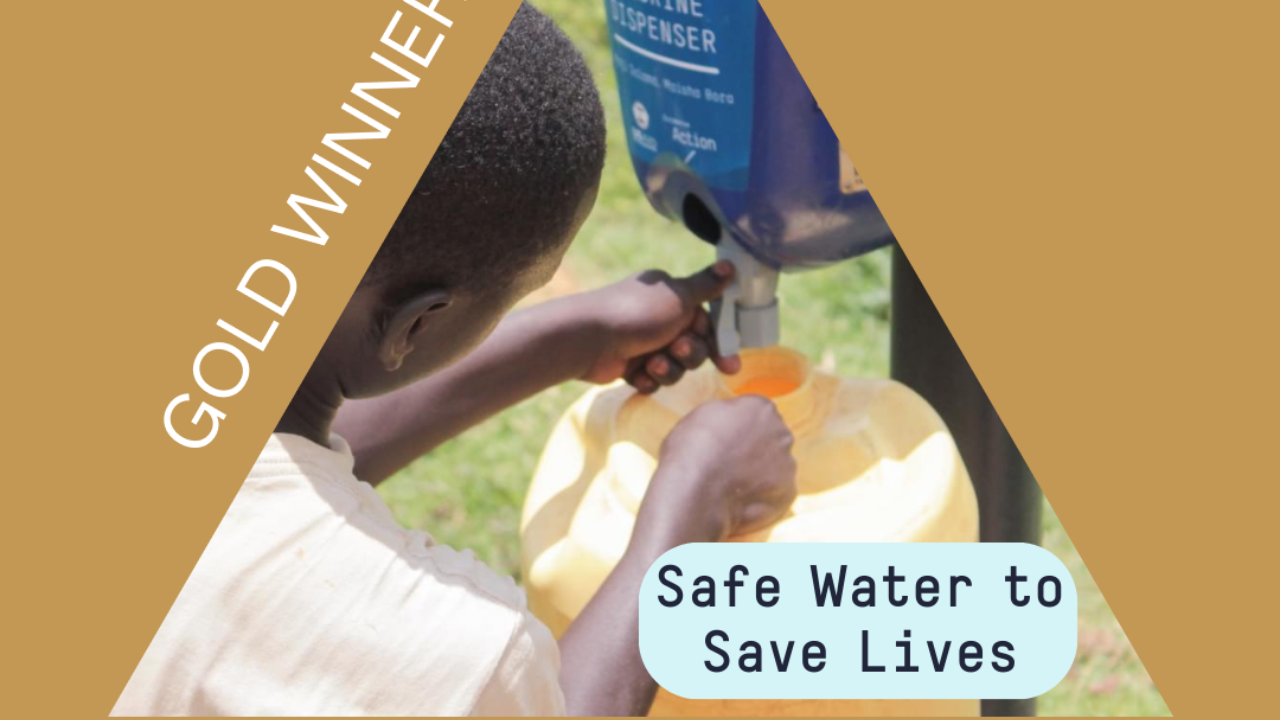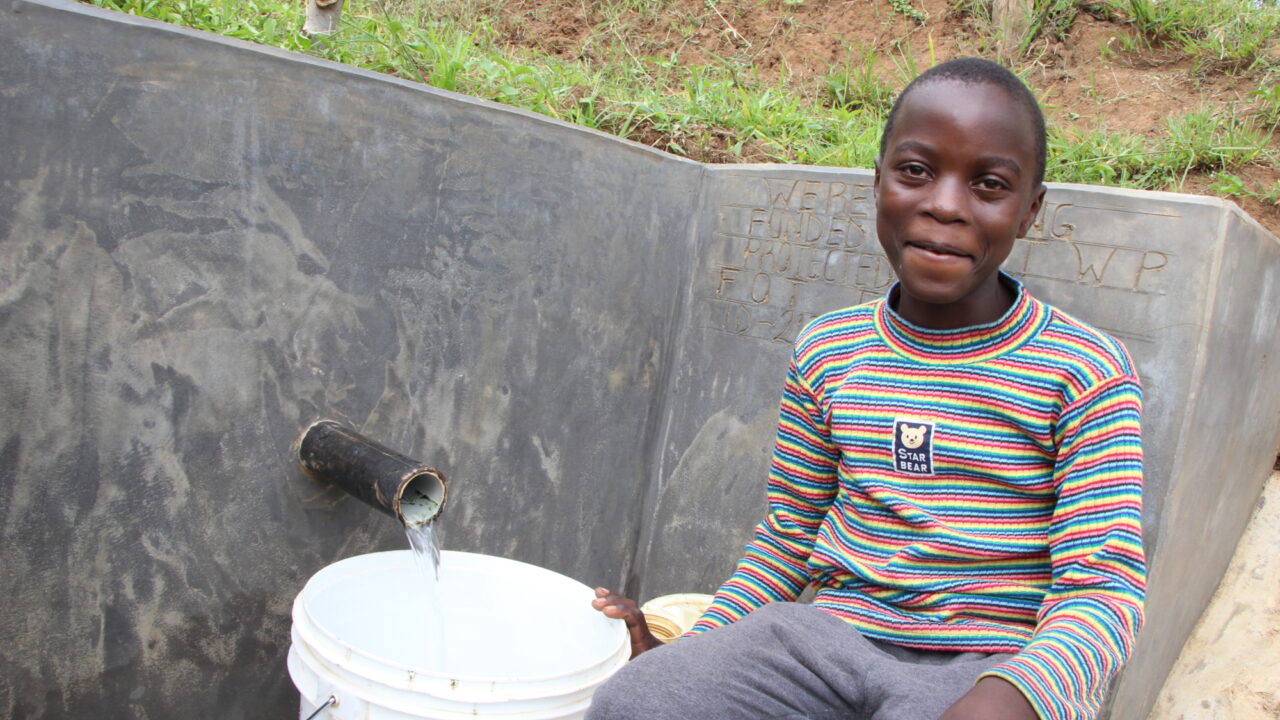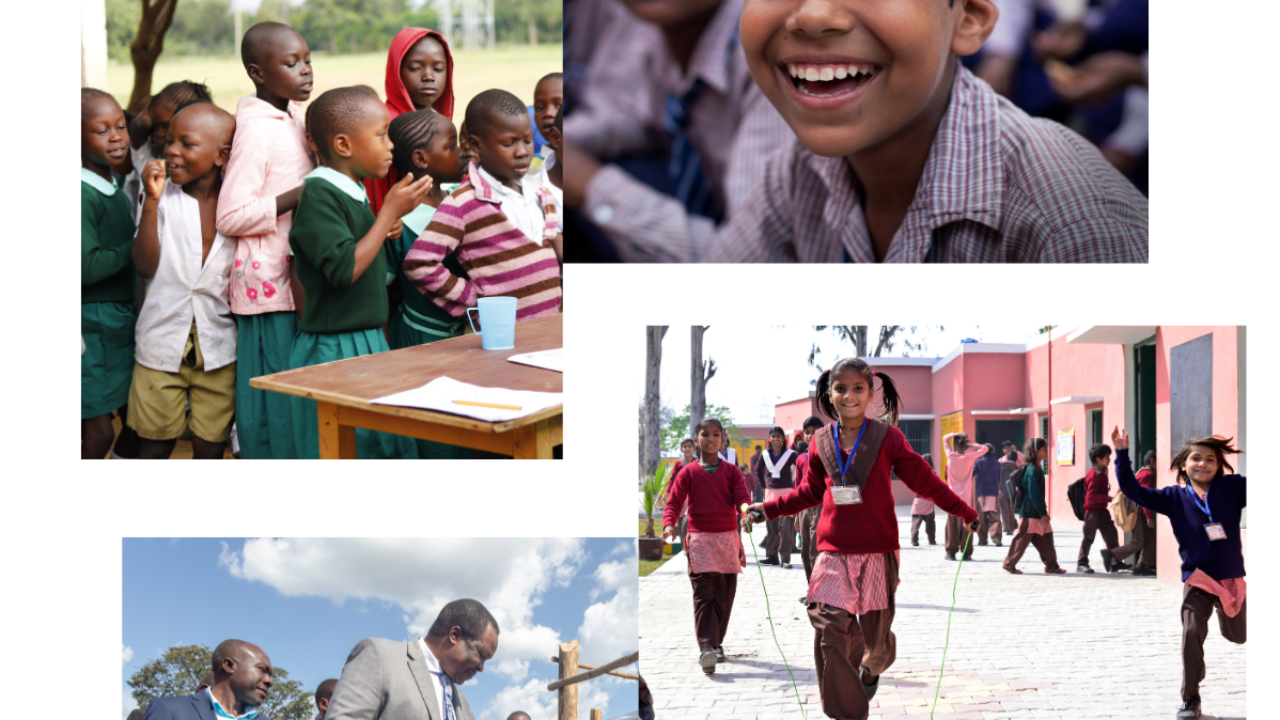If asked to describe a life saving vehicle, chances are an ambulance comes to mind. Perhaps others might think of a firetruck or even a police car, but a motorbike surely would not be a top pick, and it probably would not even make the shortlist.
However, motorbikes, and their dedicated “circuit riders,” have played an essential role in our work combating the spread of COVID-19 across rural communities in Kenya, Uganda, and Malawi. These riders brave hazardous rural roads, often no more than a dirt path, in order to deliver essential supplies.
Working around the clock over the last two months, this team has successfully distributed over 1,600 tons of soap and 34,000 liters of chlorine (for disinfecting surfaces) to over 18,000 rural communities, benefiting more than 4 million people. All on the back of motorbikes.
“We have been working hard, harder than we had ever done so before,” says Moses Baraza, senior manager for Dispensers for Safe Water in Kenya. “If it falls within the timeline we planned the activities, we work. Even today that is Eid Mubarak we made a delivery. We did deliveries during Easter Monday and Good Friday. I am just happy that [the Evidence Action team members] are willing to risk their lives just to serve the communities,” he says.
Subscribe for the latest impact – straight to your inbox
For most of 2020, health systems across the globe have been at war with COVID-19, and without meaningful interventions, this pandemic will devastate developing countries, where treatment efforts are hampered by inadequate infrastructure and limited resources.
When the World Health Organization classified COVID-19 as a pandemic in March, their primary recommendation was regular handwashing with soap. Though a seemingly simple preventative measure, this is difficult – if not impossible – for over 800 million people around the world who lack access to safe water. The problem is particularly severe in rural areas of Sub-Saharan Africa, where treated water coverage is all but non-existent.
Here at Evidence Action, we found ourselves in a unique position to address this problem. Global health issues of this scale and severity are undeniably daunting; however, over the past seven years, we have built a far-reaching infrastructure to provide safe water through chlorine dispensers to millions of people in rural Kenya, Uganda, and Malawi.
Our Dispensers for Safe Water program relies on a network of over 50,000 volunteers called “promoters”, who are chosen by the communities we serve. We knew that by partnering with them, and using our existing network of circuit riders who are responsible for delivering chlorine to even the most remote locations, we had the potential to distribute soap, provide chlorine to disinfect commonly used surfaces, and offer key hygiene education about COVID-19 to millions of people who would otherwise be left behind.
When the threat of nationwide lockdowns and infrastructure shutdowns loomed in March, it became clear that we had to act urgently to ensure the rural communities we serve in Sub-Saharan Africa would not become stranded without access to safe water, and other essential supplies.
Our staff began working around the clock to adapt our existing safe water program and leverage current relationships to ensure the communities would be adequately equipped to respond to COVID-19, even if a lockdown was put into effect.
From truck to motorbike, to volunteer, through rain and shine, our network and our staff successfully delivered essential life saving supplies to remote communities across Sub-Saharan Africa. The soap and chlorine, purchased from suppliers in urban centers, was transported to our field offices via truck. From there, circuit riders began the incredible task of transporting thousands of tons of supplies via motorbike, traversing already dangerous dirt roads, made worse by the wet season’s heavy rains, in order to make the deliveries.
Once delivered, community promoters assume responsibility for distributing the soap to individual households within the community. Each promoter is also responsible for using the chlorine to disinfect regularly-used surfaces in the community. To date, two rounds of supplies have been successfully distributed, and with the next two rounds set to conclude by the end of June, we hope to provide as much soap and chlorine as possible to the communities we serve.
“A good challenge we have now is that there is more demand for soap in the villages than we can provide,” says Baraza. “The communities are really, really appreciative of this initiative. People now believe that handwashing is a solution for them.”
Learn more about our response and how we’re supporting the communities we serve in the blogs below:


